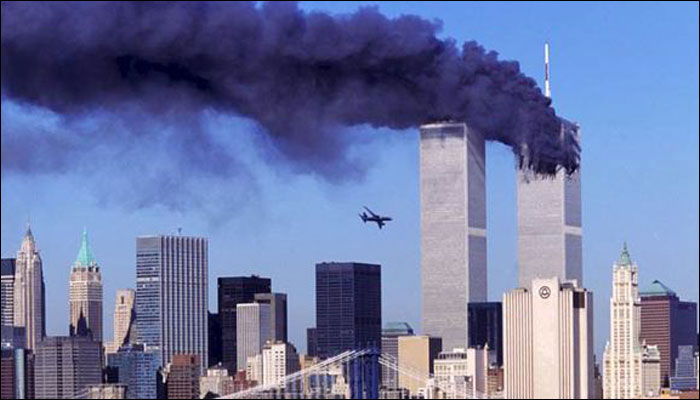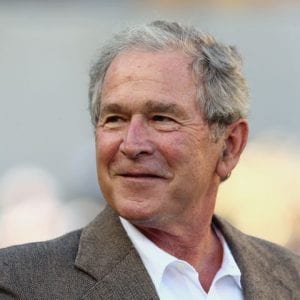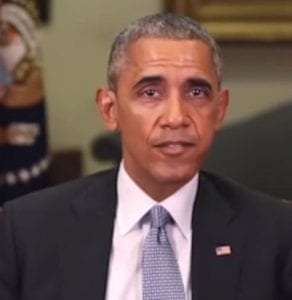
18 years after 9/11 attacks, US war on terror goes haywire

Eighteen years ago, on this day, the world took a sharp, unexpected and irreversible turn.
The al-Qaeda engineered attacks on the World Trade Center (WTC) in New York and the Pentagon in Arlington County, Virginia, while puncturing the aura of invincibility of the global superpower, and managed to awaken “the sleeping giant” for the second time since the Japanese bombing of Pearl Harbour almost six decades earlier. Nearly 3,000 people were killed and 6,000 were injured in the attacks on September 11, 2001.
Al-Qaeda itself became synonymous with terrorism even while evoking reluctant admiration in parts of the world for the daring attack.
Also read: Uncle Sam messed up Afghanistan; now wants others to clean it up
Blinded by fury, the United States has embarked on a malevolent path since 9/11 that has all but laid bare an entire country, Afghanistan, and followed that up by invading an innocent bystander Iraq and forever altering the political contours of West Asia (or, the Middle-East as the world refers to that region).
US President George W Bush, who declared a “war on terror” with the stated intention of eradicating terrorism and smoking out the terrorist even while threatening the world that it was either “with us” or “against us”, did not manage to achieve his aims.
Also read: Taliban’s likely return to Kabul will go against India
It was left to his successor Barack Obama to trace and kill the elusive al-Qaeda chief Osama bin Laden 10 years later, on May 2, 2011.

Bush, in the aftermath of the 9/11 attacks, received full, unconditional support of his allies and most of the world backed by the United Nations Security Council in leading a coalition to oust the Taliban government in Afghanistan and destroy the al-Qaeda. Today, Laden is dead and the al-Qaeda is comatose. But the Taliban, despite being ousted from power in a matter of days, is going strong and has successfully resisted the world’s combined offensive.
Also read: ISI helped CIA track down Osama bin Laden, discloses Imran Khan

In fact, the Taliban still controls at least 19% of Afghanistan and has turned the tables on the US in the sense that they are back negotiating peace. It seems a matter of time before an agreement is hammered out and the US fully withdraws its troops from Afghanistan and the Taliban again returns to power, even as part of a coalition.
If there was one unintended beneficiary, that was India. For, until 9/11, the US never really used its clout with Pakistan to fully defuse separatist violence in Kashmir which had raged since 1989. But, after September 11, 2001 almost overnight the Bush administration ordered the then Pakistan government under Pervez Musharraf to stop support for Kashmiri separatist groups, and arrest Taliban and al-Qaeda fighters which he was forced to implement, albeit reluctantly.
Also read: Terror groups may be recruiting more women to wage jihad: Study
Though there were attacks on India’s Parliament on December 13, 2001, and the Mumbai terror attacks on November 26, 2008, armed action within Kashmir appeared to have subsided and peace talks were held between India and Pakistan.
The war on terror, meanwhile, has gone haywire. The invasion of Iraq in March 2003 turned out to be a historical blunder. Egged on by vested interests within the US establishment at the time, the attack on Iraq and the deposition of its then President Saddam Hussein all but destabilised the region.
Also read: US won’t completely withdraw from Afghanistan: Donald Trump

The ousting of Saddam Hussein opened up sectarian fault lines within Iraq with the Sunnis ranged against the Shia and the Kurds. The ensuing friction resulted in the emergence of the Islamic State which has since replaced the al-Qaeda in sheer ruthlessness and had at one time even managed to capture large swathes of territory in Iraq and Syria.
Though the Islamic State was eventually pushed back by the combined efforts of the US, Kurdistan’s Peshmerga forces and Russia besides the Iraqi military, the group continues to remain relevant and now seeks to strike at unsuspecting targets anywhere in the world in alliance with local groups or on its own, the latest being the Easter April 2019 bombing of churches in Sri Lanka.
Amidst this, the uprising by common people in several countries of the Middle-East, in what is popularly called the Arab Spring, has resulted in more conflicts, with Syria and Yemen among the worst affected. Libya and Egypt too, though relatively more peaceful, are still unstable.
Also read: Pak reiterates resolve to support efforts to bring peace to Afghanistan

Interestingly, despite two presidents who followed Bush, the US has remained focussed on its so-called war on terror. Obama may have been part of the Democratic party, but under him the usage of drones increased exponentially, with 542 strikes, killing around 3,797 people including 324 civilians, according to a report by the US-based Council on Foreign Relations. The drone attacks evoked hatred in the US, especially among people on the Pakistan-Afghanistan border which saw the maximum hits.
Post-9/11, the US involvement and expenditure worth at least $2.4 trillion (as of 2017) incurred in its long-distance wars may have been among the causes of the recession that hit the country in 2008 and has since spread to the rest of the world. The liberal global ethos and democratic governments with all their flaws that existed in 2001 have given way to more rigid, conservative, right-wing leaders like Donald Trump, Narendra Modi, Turkey’s Recep Tayyip Erdogan, the Philippines’ Rodrigo Duterte, Brazil’s Jair Bolsonaro and Hungary’s Viktor Orban among many others. Not to forget Britain’s nationalist-tinged vote to exit the European Union.
Though it will require a deeper study to establish the causal effects of a crisis-hit global economy and the rise of dictatorially inclined governments, on the face of it the changes since 9/11 both in the politics and the economic situation around the world are quite pronounced with no saying where it is all leading to.

